Smart and Fun IQ Questions for Kids to Improve Thinking Skills
Smart and Fun IQ Questions for Kids to Improve Thinking Skills

IQ development in kids isn't just about scoring high on a test—it's about cultivating a curious, flexible, and analytical mind with the help of tricky IQ questions that spark deeper thinking.
Whether you're a parent, teacher, or homeschooler, even if you have the same parents, you’ll find that adding a little bit of mental play into daily routines helps sharpen problem-solving skills, improve memory, and build confidence in children.
And the best part? These tricky IQ questions with answers often feel more like games than lessons, making kids eager to participate.
Each category is tailored to specific age groups and learning outcomes. What happens when a bus driver goes the one-way street, these puzzles are sure to get both brains and laughter flowing. Such kind of tricky questions!

Introduction
Children thrive when learning feels like play, and that’s where tricky IQ questions come in.
Whether it's a playful math riddle, a classic logic puzzle, or a humorous “trick question” with a twist involving the letter t, these brain games do more than entertain. They sharpen memory, enhance logical thinking, and encourage creative reasoning without the pressure of a test or worksheet.
In a world where screens and distractions constantly surround kids, offering them a moment of brain-boosting fun can make all the difference.
A well-timed question like “What has keys but can’t open locks?” can spark curiosity, build vocabulary, and even lead to thoughtful family conversations. Tricky IQ questions have the power to transform passive learning into active exploration.

This blog brings you a carefully curated collection of tricky IQ questions with answers, ideal for kids of all ages. You’ll also find practical tips on how to weave these puzzles into your child’s daily routine—whether during lunch breaks, bedtime, or weekend play.
Trick questions are less about testing what someone knows and more about how they think.
From classic brain trick riddles that many of us grew up with, to newer, humour-filled brain teasers that rely on wordplay and surprise twists, trick questions come in all forms and difficulty levels. They’re also fantastic icebreakers at social gatherings, sparking laughter and lively conversation.
Whether it’s a silly question like “How many animals did Moses take on the ark?” or a play on words involving something spelt incorrectly, these logic trick questions are a hit with all ages.
Kids love them for their silliness, and adults appreciate the cleverness behind them. In classrooms or living rooms, they offer a perfect mix of entertainment and learning, where a simple question can turn into a moment of joy and curiosity.
Easy IQ Questions to Build Foundational Thinking
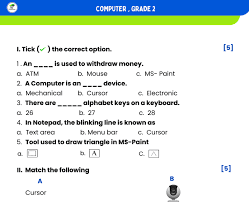
Young children are natural question-askers and pattern-finders. They love observing the world and testing boundaries.
At this stage, it’s less about complexity and more about building familiarity with structured thinking, pattern recognition, and visual memory.
Start with basic puzzles involving shapes, comparisons, and common logic. These questions develop math skills, sequencing ability, and the capacity to solve problems using simple clues. Here's a great list to try:
Sample Questions:

What has a face and four fingers but no mouth?
→ A glove.Which word is always spelled incorrectly in every dictionary?
→ The word "incorrectly" (yes, that’s the trick!).What comes next in this pattern: 🍎🍎🍌🍎🍎🍌?
→ 🍎If a hen lays one egg each day, how many eggs will three hens lay in five days?
→ 15 eggs.
As someone who’s always enjoyed playful learning strategies, I’ve found that tricky IQ questions are a hidden gem in a child’s developmental toolkit.
They do more than entertain—they activate, leading to discussions about questions like 'How can someone have two fathers?' When kids face a question with a twist, they pause, they reflect, and they learn to think more critically. It’s like gym for the brain, but with laughter instead of sweat, especially when posed with funny trick questions.
These brain trick riddles stretch their imagination and push them beyond surface-level thinking. They encourage kids to look at a problem from different angles, decode language quirks, and sometimes even embrace being wrong as part of the fun.
Over time, children who regularly engage with mind-tricky IQ questions with answers show stronger focus, better reasoning skills, and a genuine curiosity for solving problems—not just in class but in everyday life.
By reinforcing these exercises daily, children begin to naturally look for patterns, anticipate sequences, and feel confident solving small challenges—an important base for later academic success. These intelligent questions and answers pave the way for a mindset built on observation, creativity, and strategic thinking.
Hard Tricky IQ Questions to Sharpen Kids' Minds

As children mature, they develop the mental flexibility to engage with more challenging riddles that require deduction, reasoning, and sometimes a touch of humor.
These questions are designed to engage kids aged 8 and above, reminding us that two's company encouraging them to apply logic, memory, and linguistic skills in a playful way.
Unlike typical worksheets, these logic trickquestions are enjoyable and feel like games.
They're ideal for kids preparing for school assessments, competitive exams, or simply exploring their intellectual curiosity. These questions can also be introduced in group discussions, weekly riddle boards, or even family trivia nights, where you might find the same result in various answer. Engaging regularly with tricky IQ questions with answers helps build problem-solving confidence in a fun, social setting.
Sample Questions:
A man walks the wrong way down a street. A cop sees him but doesn’t stop him. Why?
→ Because the man is walking, not driving.A farmer has 17 sheep. All but 9 run away. How many sheep remain?
→ 9 sheep.What’s heavier: 1 kg of cotton or 1 kg of iron?
→ They weigh the same.If a bus driver has 7 children and 2 dogs, how many legs are on the bus?
→ Depends if others are on the bus! (A good trick question.)A man’s mother has three daughters: April, May, and...?
→ June? No, it’s the man’s mother—he’s the third child!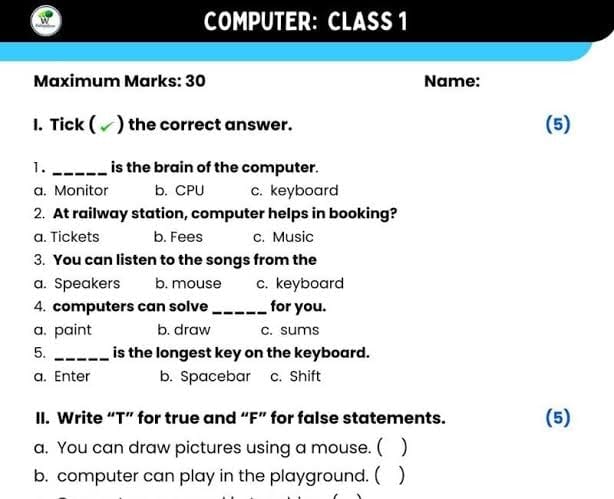
These riddles boost mental stamina, focus, and the ability to answer correctly by looking beyond the obvious. Many questions challenge kids to rethink assumptions or spot hidden clues—skills vital for success in both school and life.
They also teach the value of persistence. Getting a question wrong is an opportunity to try again, reconsider, and eventually get to all the answers.
Funny Brain Trick Riddles That Entertain and Educate
Humor plays a powerful role in learning. Funny trick questions tap into kids' imagination while making them laugh—often catching them off-guard with clever twists or wordplay.
These riddles teach creative thinking and the importance of not taking things at face value.
They're ideal for group settings like classrooms, birthday parties, or family dinners.
Sample Riddles, including those about a gummy bear :
What has two fathers, two sons, and only three people?
→ A grandfather, father, and son.What comes once in a minute, twice in a moment, but never in a thousand years?
→ The letter M.What is always coming but never arrives?
→ Tomorrow.What’s louder than a loud sound, but no one hears it?
→ A silent scream (or your thoughts!).If you're playing monopoly and land on Boardwalk, what’s the best strategy?
→ Buy it! (Not really a riddle, but a smart move!)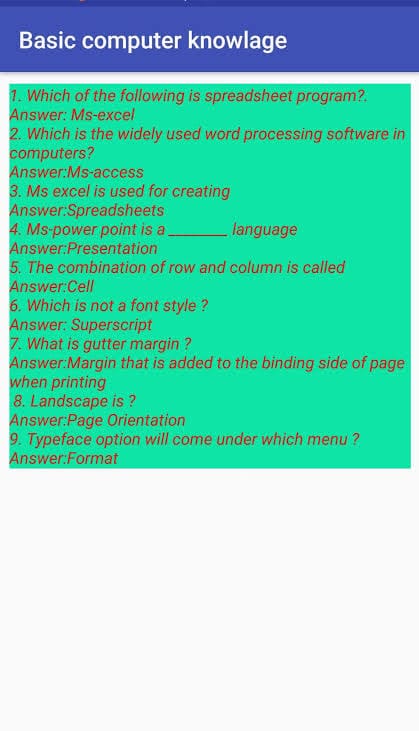
Riddles like these encourage lateral thinking, emotional expression, and humor—all important facets of well-rounded development. In a classroom, they can also help ease tension before a test or warm up minds at the beginning of a session.
And let’s face it—sometimes, asking “Why did the math book cry?” (Because it had too many problems!) is the best way to get a classroom full of giggles and growing brains.
Math Logic Trick Questions That Create Curiosity in Kids
Math doesn’t have to be intimidating—it can be full of fun, especially when presented through tricky IQ questions that challenge reasoning rather than just formulas.
These types of math skills exercises don’t just help students calculate—they build their ability to think critically.

Even kids who feel like math isn’t their thing often get intrigued by riddles and puzzles that twist logic or make them laugh.
These math-based brain teasers can turn math class into a creative thinking workshop where kids test ideas, make mistakes, and improve their problem solving skills.
Sample Questions:
If you take half of 10 and add ten, what do you get?
→ 15 (because half of 10 is 5).What odd number becomes even when you remove one letter?
→ Seven (remove the “S” to make “even”).A girl kicks a ball. It goes 10 feet and comes back. How?
→ She kicked it upward! Gravity did the rest.A math book has too many problems. Why?
→ Because it's full of math problems! (Classic math humor.)
Using riddles like these encourages kids to apply math to real life.
It also introduces abstract concepts like “how many letters in a word,” how much dirt is in a hole, or what happens when the electric train goes north—(spoiler: it doesn’t blow smoke, because it’s electric!), making kids think about how smoke blow from a train . These questions make math more accessible and far more fun, even when considering how much the fish costs .
Mind Tricking Riddles That Make Learning Fun For Kids
Kids are naturally curious about the world, so usingtricky IQquestions related to geography and general knowledge helps them connect learning to reality. These puzzles stretch their minds by mixing fact-based learning with humor and deduction.
These moments of surprise, such as when considering the other building, make learning unforgettable. You’re not just giving facts—you’re engaging kids in the kind of thinking that builds global awareness and a lifelong desire to explore through brain trick riddles.
Sample Questions:
What’s the world’s largest desert?
→ Antarctica. Most people think of sand, but deserts are about rainfall!Which country shares France’s longest land border?
→ Brazil (due to French Guiana in South America).Which continent covers the most land?
→ Asia.If there is a crash on the border of the U.S. and Canada, where do they bury the survivors?
→ Nowhere—survivors aren’t buried!What moves north but never turns south again?
→ A shadow or time!
These trick trivia questions help children discover surprising facts while building their ability to reason and evaluate clues.
They’ll remember that a birthday candle melts, an apartment building has more stories than a book, and that “but never Neptune” is part of a clever riddle that leaves them thinking.
The joy comes not just from getting it right—but from being stumped and then laughing at the answer.
How Tricky IQ Questions Help Kids?
Sometimes the most effective riddles are the ones drawn from daily life.
Questions about car's driver, truck driver, or a bus driver appeal to kids because they involve relatable situations they see every day. Or related to What has one head, one foot, and four legs? A bed.They test not only knowledge but also awareness, empathy, and quick thinking.
That riddle teaches kids to listen carefully—how can he if he’s already dead? It’s a clever way to build not only logic but also verbal comprehension and listening skills, unlike the question about how many cows .
Sample Questions:
A bus driver turns left, goes through three red lights, and parks in front of the post office. What's wrong?
→ Nothing—it’s his route!You enter an apartment building and see the third daughter cleaning. The first is cooking. What is the name of the third daughter?
→ The question began with “you walk in”—so it’s you.
Kids love when the answers surprise them.
These riddles encourage creative thinking and attention to detail. They also improve comprehension, logic, and how to answer correctly under pressure—essential skills for school and life.

Bonus Trick Trivia Questions for Smart Thinkers
Time to challenge even the sharpest young minds! These trick trivia questions are designed to stump, surprise, and spark long debates between friends.
Perfect for family game nights, classroom competitions, or when you need to entertain and educate simultaneously.
These questions reward those who don’t rush—who listen, think, and consider the entire question, particularly when asked on the same day . It’s the difference between reading “how many animals” entered the ark and realising the question said “each species.” Riddles like these develop high-level problem-solving skills and reward deep thinking.
✅ Sample Riddles:
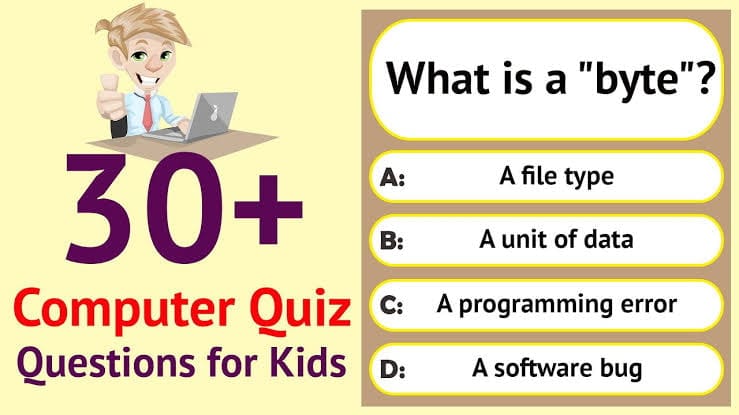
How many animals of each kind did Moses take on the Ark?
→ None. It was Noah, not Moses.If a rooster lays an egg on a slanted roof, where will it fall?
→ Nowhere—roosters don’t lay eggs!How much dirt is in a hole that’s 6 feet deep and 3 feet wide?
→ None. It’s a hole!What five-letter word becomes shorter when you add two letters?
→ Short (add "er").What has two keys but can’t open any doors?
→ A piano.
These riddles are designed to reward cleverness and calm thinking. They encourage kids to think before answering, to recognise misleading phrasing, and to take pride in solving complex puzzles.
Whether it’s about a single person who sees two girls in the same place, or whether a concrete floor breaks when you drop a raw egg (it doesn’t—the egg breaks), or even the challenge of a five letter word every riddle teaches something new.
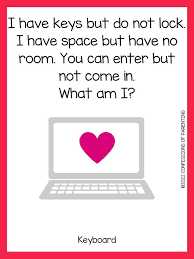
When learning feels like play, it becomes more effective—and that’s the magic of trick questions. They entertain, educate, and encourage kids to look at the world from different angles.
Whether it's a soccer ball rolling down a hill or someone trying to count how many cows are in the barn, these puzzles make everyday scenarios thought-provoking.
Tricky IQ questions build far more than knowledge. They develop creative thinking, math skills, and deep problem-solving skills. They also create moments of laughter, curiosity, and pride—all essential for lifelong learning.
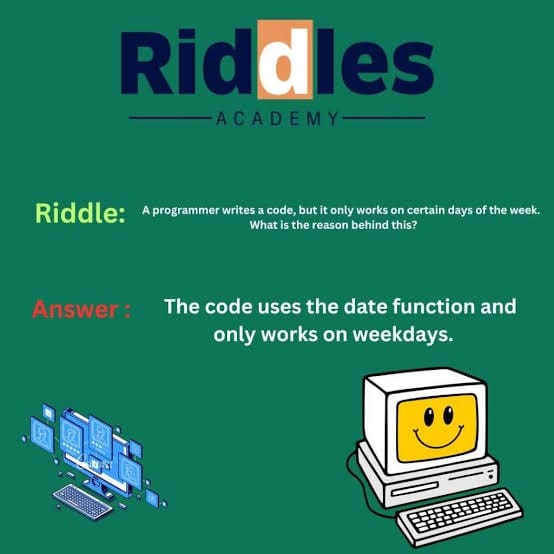
So next time you're looking to engage a child, ask a riddle. Ask them how many letters are in “alphabet” or what happens when day breaks. Let them figure out what has one letter, goes to the post office, and isn’t a door (a mailbox!).
Learning is best when it feels like a game. These clever questions turn ordinary moments into extraordinary learning opportunities—one brain teaser at a time.
Tips to Use Tricky Questions in Everyday Learning
Integrating tricky IQ questions into everyday routines doesn’t require special planning—it just needs a bit of intrigue and consistency. One of the simplest methods is to use 1–2 logic trick questions a day as brain warm-ups.
Whether it’s during breakfast, before school, or just after returning home, asking a clever riddle or logic teaser can help kids activate their minds and improve focus through intelligent questions and answers.
Another fun approach is to add these trick questions or short riddles to lunchbox notes or bedtime routines. Imagine your child opening their tiffin, which is decorated completely, to a note that asks, “How much dirt is in a hole that is 3 feet wide and 4 feet deep?”—(spoiler: none!).
These little puzzles create excitement and a love for learning in unexpected moments. Parents can also use riddles to spark meaningful discussions during family dinners or weekend outings.
A playful trivia question can quickly turn into a brainstorming session that gets everyone laughing and thinking together.
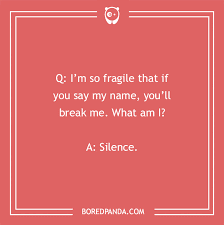
Creating a “riddle wall” at home or in the classroom is another excellent tool. Write new tricky IQ questions on a chalkboard, whiteboard, or sticky notes and encourage kids to post their answers.
This turns learning into a visual and interactive experience while fostering friendly competition.
Over time, these small, everyday habits can build strong problem-solving skills, encourage creative thinking, and help children associate learning with fun, not stress.
If you’re running in a race and you pass the person in second place, what place are you in?
Take a second to think about it. Most people are quick to shout, “First place!”
But here’s the trick—if you pass the person in second place, you’re now in their spot. So the right answer is actually second place. It’s a great example of how trick questions for kids work—they sound simple, but they stretch your brain in unexpected ways.
Trick questions for kids are more than just funny or clever riddles.
1. Keep It Simple and Age-Appropriate
Aim for questions that fit their age and developmental level. Use everyday language and concepts they already understand. For younger children, shorter questions with familiar ideas—like animals, toys, or school—work wonders.
2. Add Wordplay and Puns
Want to make a kid giggle and think? Use puns and wordplay! Children love riddles that play tricks with language. A great example of this is, “What has four wheels and flies?” The answer? A garbage truck.
3. Use Real-Life Scenarios
The more relatable a riddle is, the more a child will connect with it. When trick questions are grounded in real life—like birthdays, meals, or school routines—they feel familiar and engaging. Try asking, “What goes up but never comes down?” (Answer: Your age!) These kinds of trick questions for kids encourage deeper thinking through everyday context.
4. Flip Their Assumptions
Trick questions work best when they flip a child’s expectations. They challenge kids to pause, rethink, and look at problems from a new angle.
5. Test Your Questions on Real Kids
There’s no better way to know if your trick question lands than trying it out on kids. Watch their faces—if they smile, giggle, or ask for another, you’ve nailed it. If they look puzzled or uninterested, tweak the question.
Testing your trick questions for kids in real-time helps you improve and keeps learning fun for everyone involved.
As someone who’s used these questions in classrooms and at home, even during a walk down a country lane I’ve seen firsthand how they spark curiosity and joy. Trick questions aren’t just clever—they train kids to think critically, question their assumptions, and most importantly, they build a love for learning.
Tricky IQ Questions – FAQs
What makes tricky IQ questions with answers effective for self-learning at home?
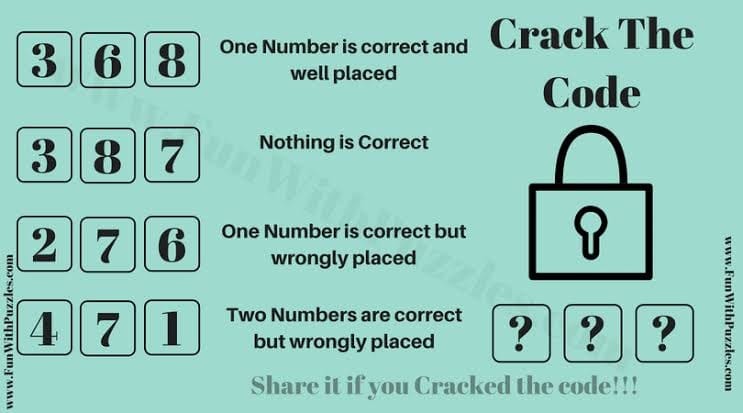
Tricky IQ questions, especially those with all the answers provided, are incredibly effective tools for self-learning. They offer instant feedback, allowing children to correct themselves and learn from their mistakes independently.
When kids see the logic behind a clever answer—like why “none” is correct for “how much dirt is in a hole”,—they develop deeper comprehension and retain concepts longer. This supports a curiosity-driven learning environment, ideal for developing both confidence and academic ability through tricky IQ questions with answers.
How do logic trick questions differ from standard brain teasers for kids?
Logic trick questions often follow a step-by-step reasoning path. They require kids to spot patterns, eliminate false assumptions, and think critically.
For example, a question like “An electric train is moving north. Which way does the smoke blow?” has a twist—the train doesn’t blow smoke. On the other hand, traditional brain teasers may test memory, wordplay, or general creativity without demanding structured logic. Both types are valuable, but logic puzzles are especially helpful in preparing kids for math and science tasks.
Can mind tricking riddles be used in group activities or games?
Absolutely! Mind tricking riddles and trick trivia questions are perfect for classroom challenges, family trivia nights, or even birthday party games.
For instance, asking, “If a plane crashes on the border of the U.S. and Canada, where do they bury the survivors?” can lead to laughter and learning simultaneously (you don’t bury survivors!).
These riddles foster teamwork, laughter, and the ability to discuss different perspectives—key elements in building collaborative and social learning environments.
What age is ideal to introduce brain trick riddles to children?
Kids as young as 4 or 5 can begin with simple, visual, or shape-based riddles. Think of puzzles like “Which one is not a door?” or questions that involve identifying objects based on shape or function.
As children grow, they can graduate to more complex trick questions that involve numbers, patterns, or deduction. By age 8+, most children can start handling trickier problems, such as “A bus driver goes the wrong way down a one-way street. Why isn't he caught?” (Because he’s walking!)—promoting problem-solving skills and logical reasoning.
How do intelligent questions and answers prepare kids for problem-solving in real life?
These tricky IQ questions help kids think beyond textbooks. They teach persistence, logical sequencing, and attention to detail—core skills required in both academic and everyday life.
For instance, if a riddle involves tracking how many animals are on a farm after some leave and some stay, kids learn to manage multiple variables in a single problem. These exercises boost not just math skills but also real-world decision-making, like budgeting pocket money, organising tasks, or resolving minor conflicts.
Why are tricky IQ questions more engaging than traditional worksheets?
The magic lies in their playfulness. Traditional worksheets can feel repetitive, but tricky IQ questions are like little games. They spark interest, encourage laughter, and remove the fear of failure.
That joy of discovery makes learning feel like a game, not a chore. Whether it’s figuring out what lies eggs, how many letters are in a word, or who the widow’s sister is, each riddle strengthens mental agility while keeping children entertained using mind tricking riddles.
Comments
Your comment has been submitted